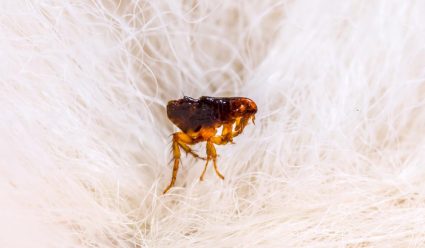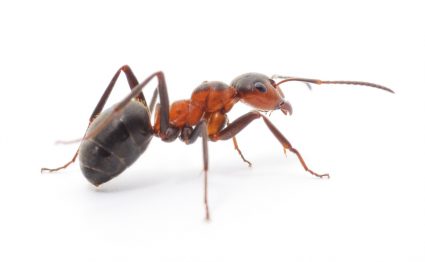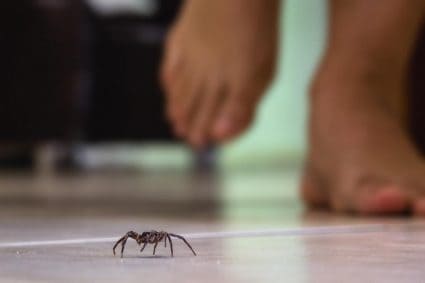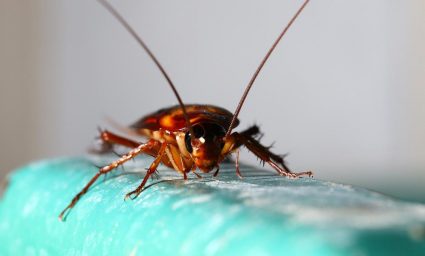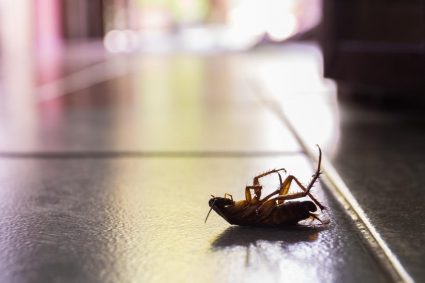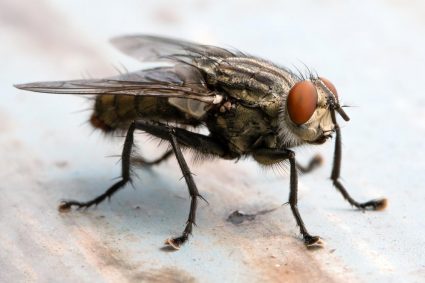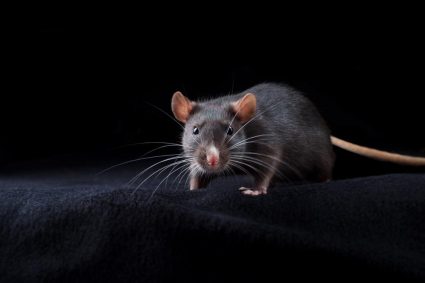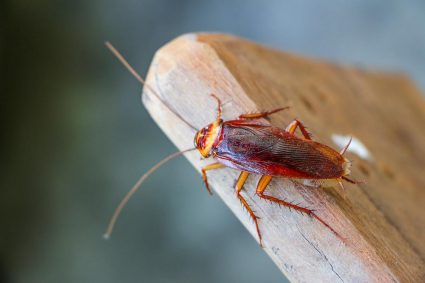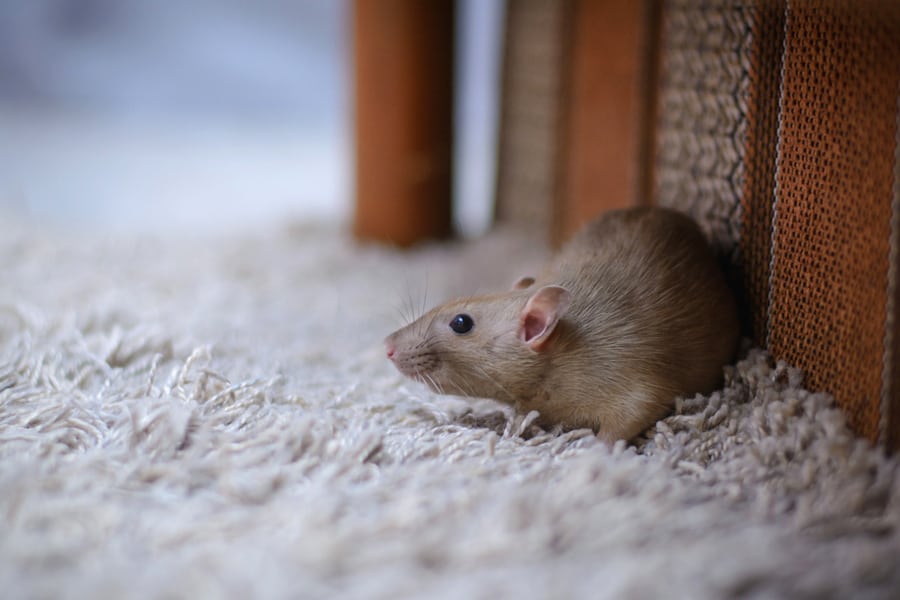
I recently visited my mother’s house to collect some stuff I had stored in her basement.
As I entered the basement, I came across a pungent smell. Although I first thought it was the smell of damp wood, I grew suspicious due to the heavy ammonia odor lingering there.
As I started moving storage boxes around, searching for what I was after, I discovered many mouse droppings, confirming my fears of a mouse infestation.
After helping my mother get rid of the mice infesting her basement, I researched the smell mice create indoors since it allowed me to sniff out their unwelcome presence and take quick action.
The odor that mice in houses develop is strong and unmistakable, best described as a faint ammonia smell, coming close to the pungent aroma of damp wood.
Let’s learn what mice in houses smell like, what produces this repulsive odor, and other common signs of mouse infestations that can be used to confirm mouse problems.
What Mice in House Smell Like
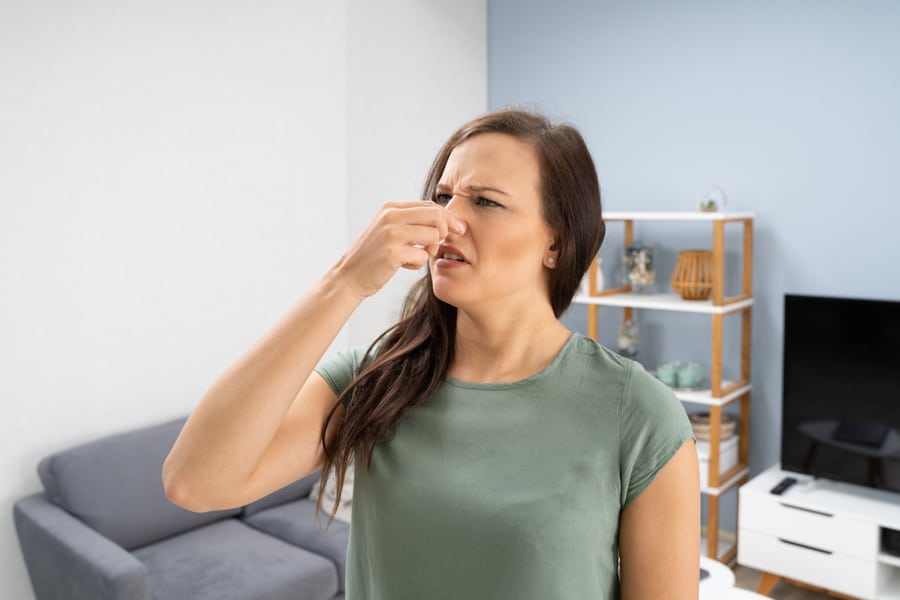
Mice living indoors create a trademark strong odor, effectively signaling their presence in a house or any other structure.
This smell is unmissable and unique, with a strong resemblance to ammonia and damp wood. The pungent smell of mice is caused by their droppings, urine, and fermentation.
The smell of mice indoors is caused by their poor bladder control, resulting in frequent urination.
Mice also use urine to mark territory. As a result, areas where mice live usually contain many tiny puddles of urine that ferment over time, creating a stale ammonia smell.
Where To Check for the Smell of Mice
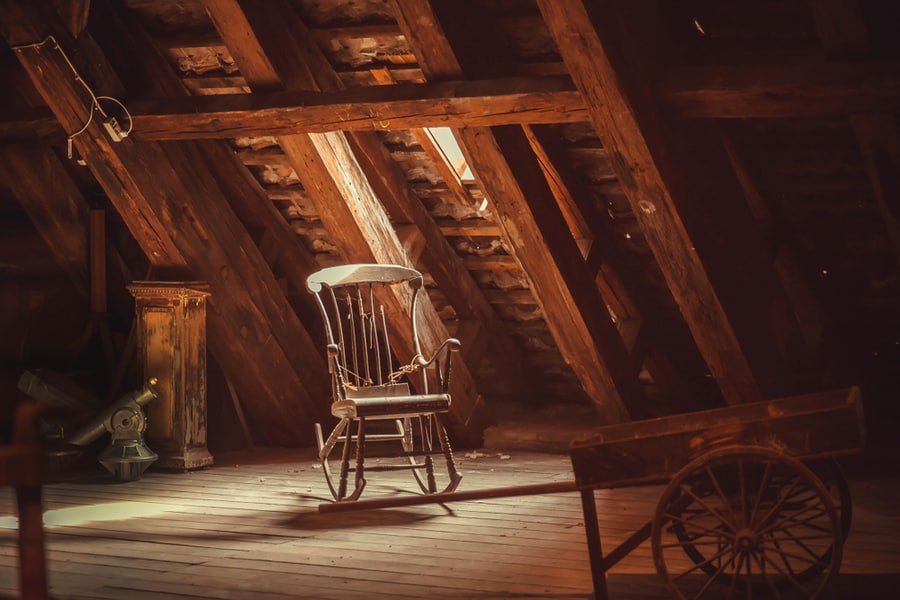
Certain areas in the house are more susceptible to mice activity and infestations.
They usually prefer warm and dark places away from frequent human activity and close enough for food and water sources.
Below are some common areas that are likely to have the lingering smell of mice:
- Attics
- Basements
- Cavity Walls
- Cellars
- Cupboards
- Garages
- Kitchens
- Laundry Rooms
- Lofts
- Sheds
- Wardrobes
The smell of mice sometimes lingers near compost bins providing food and shelter and vegetation they use for nesting and shelter.
Other Signs of Mouse Infestations
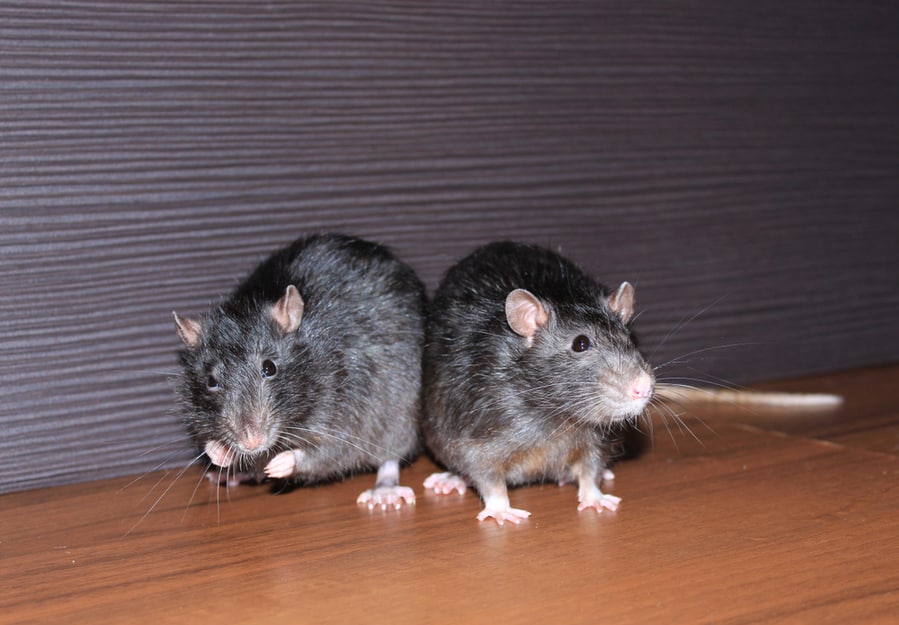
In addition to the highly noticeable odor mice create, the following signs are common in areas high in mouse traffic.
Identifying these signs, alongside the unpleasant smell that mice develop, can help homeowners take quick action to repel mice and avoid infestations.
1. Mouse Droppings
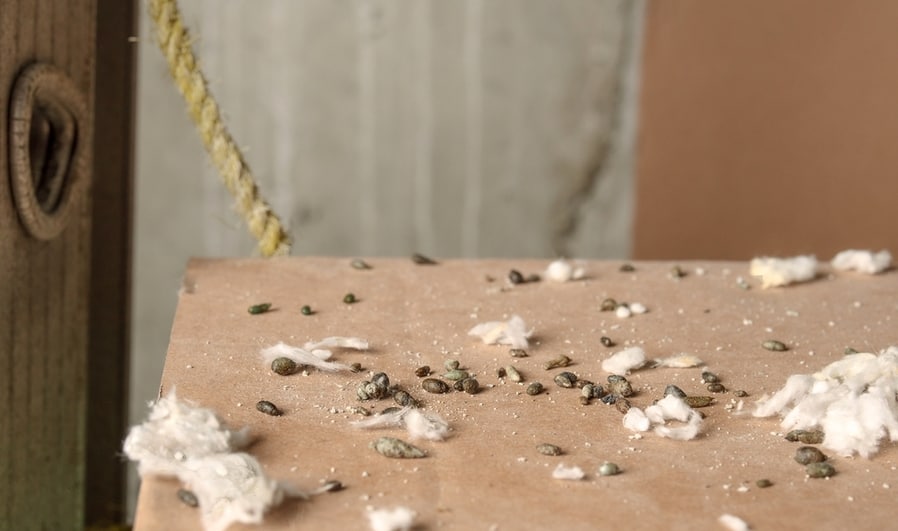
The presence of mouse droppings is one of the telltale signs of their existence.
A mouse usually produces 50 to 80 dark brown droppings daily.
They are generally 3 to 8 millimeters long, appearing similar to grains of rice with pointy ends.
2. Mouse Damage
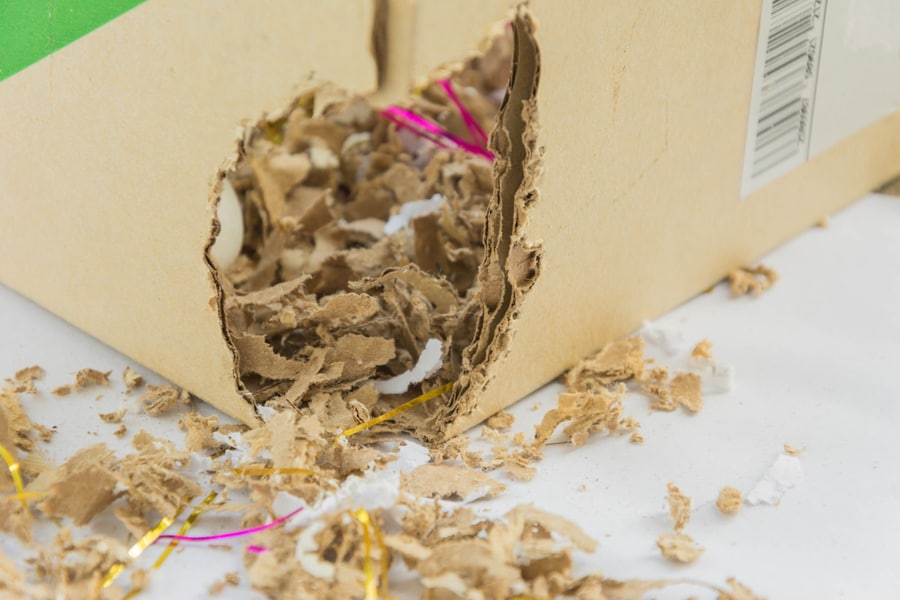
Mice cause all kinds of damage to food and household items.
They pay 20 to 30 visits to their food sources daily, with each mouse consuming 3 to 4 grams daily.
Their teeth grow throughout their lifetime, requiring them to gnaw on hard material so that the teeth remain at an ideal length.
As a result, mice can damage wood, cables, plastic, and other hard materials.
Mice pose a significant health hazard due to contamination caused by their urine and feces, leading to Salmonella.
They also spread diseases such as Hantavirus, Leptospirosis, Lymphocytic Choriomeningitis (LCM), and Monkeypox.
3. Dirty Grease Smudges
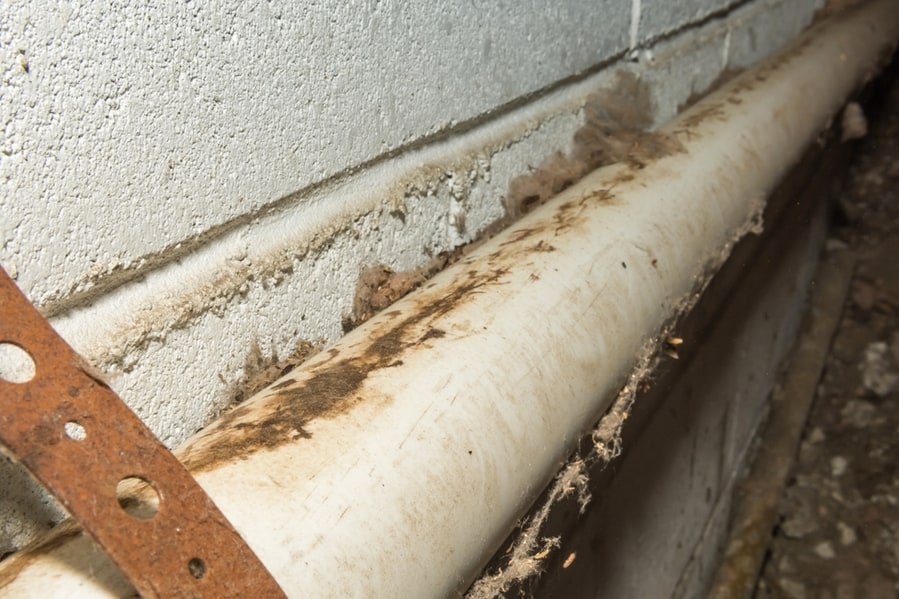
Mice have poor eyesight resulting in them sticking to familiar routes.
Frequently brushing off their dirty paws and bodies while moving creates smudges on their regular routes.
4. Scratching Noises

Hearing scratching noises is common in houses infested by mice.
These noises are most likely to occur at night, the preferred operating time of mice.
5. Mouse Nests
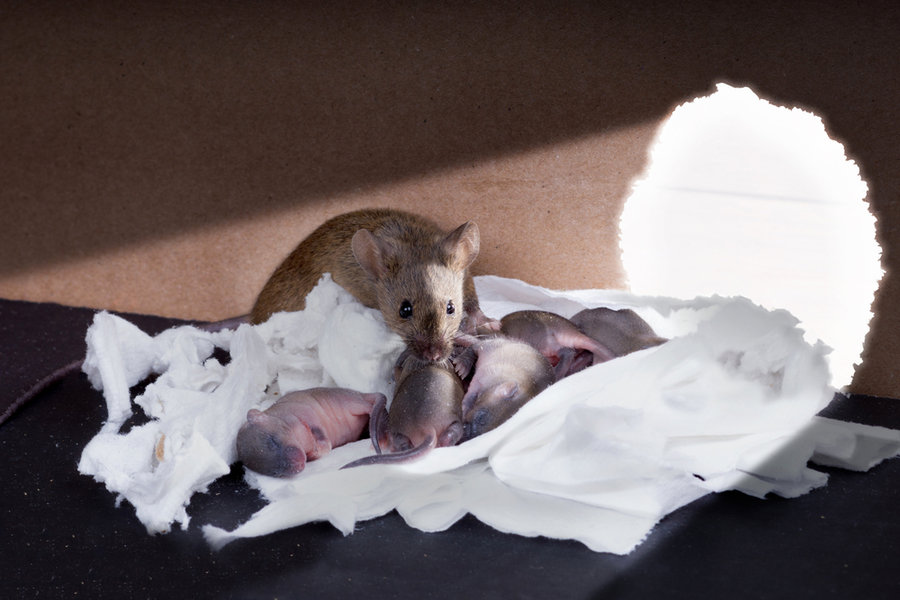
Mice usually start nesting as soon as they take residence in a house.
They use shredded fabrics and newspapers to create cozy nests in areas out of harm’s way, such as ceilings, storage boxes, cavity walls, and underneath floorboards.
6. Urine Pillars
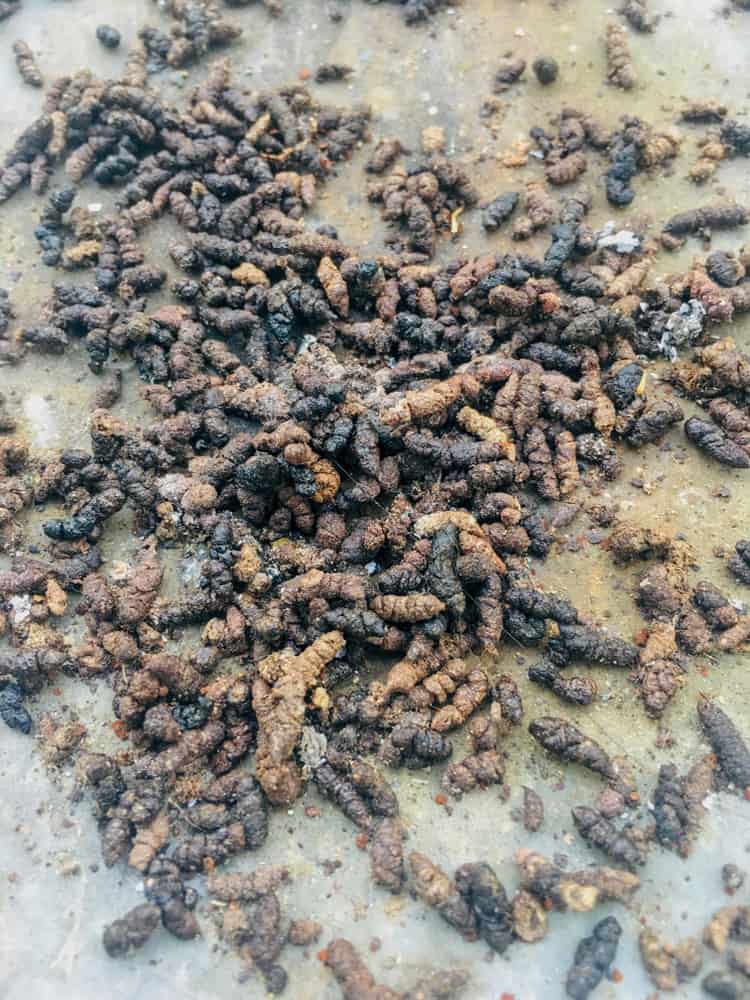
These usually point to a heavy mouse infestation.
These mounds consist of dirt, urine, and feces, usually reaching 4 centimeters in height and 1 centimeter in length.
Conclusion
Mouse in houses and other confined spaces produce a distinctively strong ammonia smell that closely resembles the smell of damp wood.
This foul aroma is created by the stale mouse urine and droppings, which mice produce abundantly.
It’s a highly distinguishable odor, making it one of the best ways to recognize the presence of mice in houses before taking action to repel them.
Frequently Asked Questions
What Does It Smell Like if You Have a Mouse Infestation?
The urine and droppings of mice produce a unique ammonia-like odor or urine smell, sometimes mistaken as the scent of damp wood.
However, the strong presence of ammonia in the air helps distinguish the scent of mouse activity from the odor created by rotting wood.
What Does Mouse Pee Smell Like?
Mouse urine has a strong resemblance to ammonia, which is created by the fermentation of urine and droppings.
This distinctive urine-like odor is one of the best clues homeowners can use to recognize that they are dealing with a mouse problem.
What Kind of Smell Do Mice Have?
The smell mice create in confined spaces is best described as a “musky ammonia smell” or the smell of “stale urine.”
This repulsive odor is easily noticeable, lingering in areas frequented by mice since they produce urine and droppings throughout the day due to poor bladder control.
Do Mice Let Off an Odor?
The highly noticeable smell that mice create indoors comes from their stale urine and droppings, which they produce throughout the day in many small puddles and granular droppings.
The resulting smell lingers almost anywhere they operate, providing an unmissable clue to homeowners to identify their presence.

